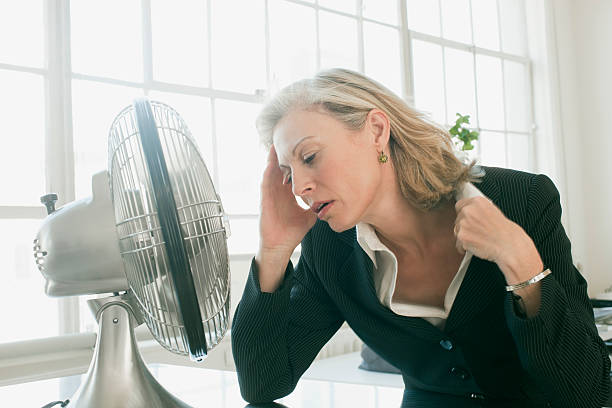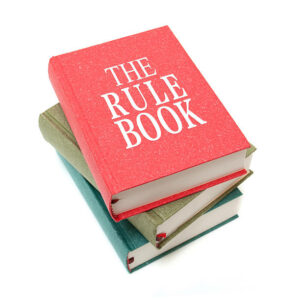
Workplace rights for paid menopause & menstrual leave
Calls for Australian women to receive legally entitled paid menstrual and menopause leave is growing. The debilitating symptoms of menopause and menstrual cycles place woman at a severe disadvantage in their professional lives. And the statistics more than back up this claim. This article argues to extend leave for the workplace rights for paid menopause & menstrual leave. Women should not be disadvantaged, yet alone discriminated against or dismissed because of this.
50 per cent of the population will experience menopause as an inevitable part of aging. And many of these women will suffer symptoms that affect their work life. In a 2022 survey by the UK Parliament, 92 per cent of respondents reported that their menopausal symptoms affected them at work.
Women experiencing menstrual symptoms at work are similarly prevalent. A recent study reveals that 90 per cent of Australian women suffer debilitating pain from their periods. This causes 40 per cent to take days off work or hide symptoms while attending work, making their symptoms even worse.

Why we need workplace protections for menopausal workers
Perhaps more than any other issue, the workplace rights of women experiencing the debilitating symptoms of menopause and menstruation is one that must be addressed by both employers and law makers. And this issue is fast becoming a priority for many in Australia and across the globe.
In the UK, the issue of providing women with protected workplace rights – including paid menopause leave – is currently being considered at the highest levels of government. In 2022, the UK Parliament launched a committee exploring the “legal, economic, and social imperative to address the needs of menopausal employees.”
“The current law does not serve or protect menopausal women,” the committee says in its report. “There is poor employer awareness of both health and safety and equality law relating to menopause. More fundamentally, the law does not offer proper redress to those who suffer menopause related discrimination.”
While this statement speaks to the situation in the UK, the exact same could be said for Australia. Our courts have ruled that certain illnesses that affect women are classified as impairments in the workplace. This includes severe morning sickness and endometriosis. As a result, workers who experience these illnesses are protected by workplace anti-discrimination laws. There has yet to be, however, any similar court rulings involving a worker who experienced menopausal or menstrual symptoms. And hence, there are no specific legal protections for these women.

The challenges menopausal workers face
In its report, the UK Parliamentary committee details the many challenges that menopausal workers face. It found that that these workers are “highly skilled and experienced”. How many “feel forced to leave work because of menopausal symptoms.”
For those who do continue working, their symptoms are often made worse by their workplace environment. This is because many lack toilet access or the ability to control ventilation, temperature, light and noise. Some also require employees to wear restrictive workwear. This lack of support from employers is extremely costly for menopausal workers, the committee found. It forces many women to decrease their hours or miss out on the chance for a promotion.
The practical changes needed to support menopausal workers
Based on its findings, the UK Parliamentary committee called for the UK government to make menopause a protected characteristic under anti-discrimination laws. It also recommended that employers implement more menopause-friendly policies and consider workers suffering from symptoms as an OHS issue.
Among the practical adjustments, the committee recommends employers place fans at workers’ desks and improve ventilation. It also said that providing access to drinking water, toilets and washing facilities was critical. So too ensuring work uniforms are practical for menopausal women, including that they’re made from more breathable material.

Paid menopause leave and flexible working conditions
The UK Parliamentary committee made some potentially game-changing recommendations that I’m sure Australian women would like to see here too. This includes for the UK government to appoint a Menopause Ambassador to help employers craft menopause policies for their workers. The committee also called for the government to work with a large employer to trial a policy of paid menopause leave.
“The Government should work with a large public sector employer with a strong public profile to develop and pilot a specific ‘menopause leave’ policy and provide an evaluation of the scheme and proposals for further roll out, within 12 months of commencing the scheme,” the committee recommends.
Flexible work policies, too, was a measure that many witnesses and respondents to the committee’s report would like employers to consider. “Many witnesses proposed that any workplace policies should address menopause-related sickness specifically; some suggested employers should update existing sickness and flexible working policies to acknowledge the menopause as a factor,” said the committee.

Australian expert calls for our policy makers to take note
The UK Parliamentary committee’s call for menopause to be considered a protected characteristic would certainly be praised by many in Australia. One person who’s in favour of implementing a similar measure here is Marian Baird. A professor of gender and employment relations at Sydney University.
Professor Baird says that Australian policy makers should pay attention to what the UK is doing in regard to gender equality at work. She says that enshrining menopause as a legally protected workplace characteristic in Australia would be a “significant development.”
“With generally ageing workforces and increasing numbers of women in the workforce it is critical to consider how governments and employers can offer support to workers who need it, but this policy space is also under-evaluated and we don’t yet have an understanding of ‘best practice,”
Professor Baird told Workplace Express.

The push for menstrual leave and period-friendly policies
As is the case for menopause, calls for workplace protections and support for Australian women who experience menstrual symptoms are also increasing. There are currently no legal entitlements for female workers to access paid menstrual leave. However, some local businesses like the Victorian Women’s Trust (VWT) are leading the way in implementing menstrual policies, doing so in 2017.
The VWT’s menstrual policy allows for employees who are experiencing symptoms to access paid menstrual leave. It also allows employees experiencing period symptoms to work from home. The VWT also provides a workplace environment that encourages the comfort of employees, including the ability to rest in a quiet area.
Workplace rights for paid leave in Victoria
Another breakthrough in the fight for menstrual leave came in 2020. In a world-first, Victoria’s Health and Community Services Union made a claim for reproductive health and wellbeing leave as part of its collective bargaining agenda. The claim includes five days paid leave for a variety of reproductive health concerns, including period pain. Other Australian workplaces to implement menstrual policies include Future Super and Modibodi. But while these are positive steps forward in the fight for female worker rights, there’s yet to be widespread adoption of menstrual workplace policies across the other states

Menstrual workplace protections around the world
When it comes to menstrual workplace protections, Australia is lagging behind many countries. You may be surprised to hear that our closest South-East Asian neighbour, Indonesia, already provides legal protections for workers suffering from menstrual symptoms.
Indonesia introduced protections in 1948 and currently provides women with two days menstrual leave per month, without giving prior notice. The legal mandate is however often up to the discretion of the employer, with some only allowing one day’s leave, or none at all. In Taiwan, legislation entitles female workers to three days of menstrual leave per year, although at half pay. This is in addition to three days of sick leave. While in the African country of Zambia, female employees are legally entitled to take one day of menstrual leave each month. This is known as “Mother’s Day,” and if an employee is denied leave, they can prosecute their employer.
But perhaps the most promising breakthrough for advocates of menstrual leave is Spain’s recent move. In May this year, the Spanish government approved a bill that grants paid menstrual leave. If the bill receives approval by Spanish parliament, it will provide workers experiencing period pain to as much leave as they need. This law will not only be a first for Europe, but the Western world too.

Paid menopause and menstrual leave – It’s time for change
With so many female workers across Australia forced to suffer at work, it seems only right for our policy makers to consider providing legal entitlements for paid menopause and menstrual leave.
Perhaps the federal government should consider adding a new provision to the National Employment Standards (NES). The NES currently allows workers the right to paid personal Carer’s leave and compassionate leave. And in 2021, the Fair Work Commission expanded the reasons for which workers can take compassionate leave. A woman can now take compassionate leave if they have suffered a miscarriage or stillbirth, and their partner can also take leave.
While this is a step in the right direction toward providing reproductive protections for workers, it’s by no means sufficient. We can only hope that the Australian government takes note of the UK parliamentary committee’s recommendations.

Conclusion to: Workplace rights for paid menopause & menstrual leave
Have you experienced sexual discrimination at work?
If you have been treated unfairly or even dismissed for reasons relating to your gender, our team at A Whole New Approach can help. For the last 20 years, we’ve assisted thousands of workers who have experience sexual harassment or sex discrimination in the workplace. along with other gender issues. AWNA are not lawyers, nor do we want to be. We are at the forefront of advice and commentary. We can help you lodge a complaint with the relevant government bodies in your state or in the federal system. We make the process less stressful. All adverse action issues, sick leave. Feeling like being forced to resign, or sexual harassment issues call us without delay.
Call us today on 1800 333 666 for a free and confidential conversation.
Articles similar to: Workplace rights for paid menopause & menstrual leave
4 things your boss can’t legally do in Australia






